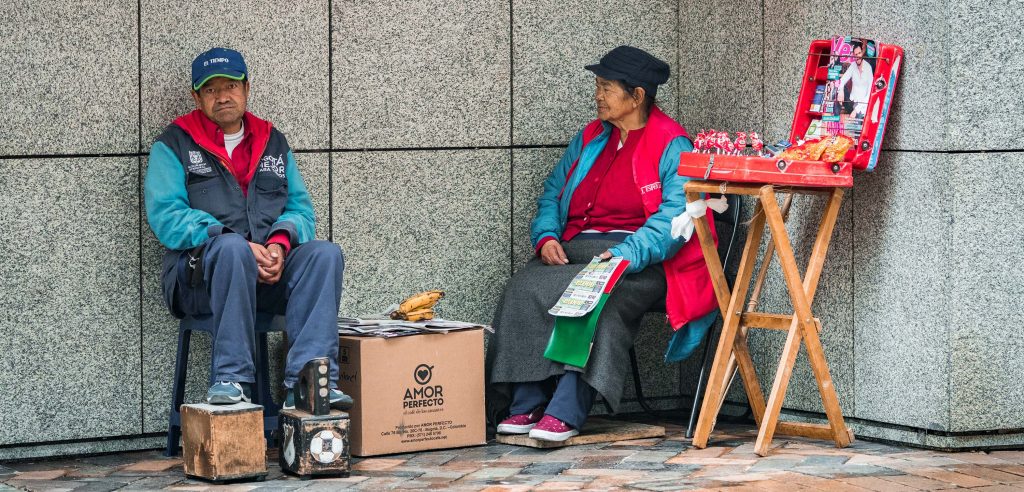
The COVID-19 pandemic has precipitated a new international research collaboration between Kent Law School, the University of Essex and the University of Rosario in Colombia that will address the precarious conditions of people working in the informal economy.
Dr Luis Eslava and Professor Donatella Alessandrini have been awarded £4.9k by Kent’s Global Challenges Research Fund (GCRF) Emergency Response Fund for their project, ‘Informal Work and Public Health in Colombia: Targeted Regulation during the Covid-19 Global Emergency’.
The project sees them partnered with Dr Anil Yilmaz and Dr Tara Van Ho from the School of Law at Essex (who have received the support of a GCRF Research Pump Priming Fund from the University of Essex); Professor Johanna Cortés-Nieto and Dr Enrique Prieto-Rios from Rosario’s Faculty of Jurisprudence; Dr Iván Jaramillo, director of the Observatory of Work (LaboUR); and Professor Leonardo Briceño, director of the Public Health Research Group at Rosario’s School of Medicine and Health Sciences. Rosario is also co-sponsoring the project.
The international, interdisciplinary team of socio-legal scholars, labour economists, anthropologists, public health researchers, infogram specialists and documentary producers will focus their attention on Colombia – a country in which more than 58.6% of the population works in the informal sector.
The project will produce the first comprehensive database on the volume and characteristics of informal work in Colombia, using existing yet disaggregated sources of information. This quantitative approach will be complemented by the construction of six life histories based on in-depth interviews and a documentary produced in collaboration with informal workers associations.
Project outputs and policy briefings will voice the concerns of workers in the informal economy and inform workers’ organisations and national and local government’s responses to COVID-19.
Dr Eslava said: ‘This project is a timely interdisciplinary and interinstitutional effort that recognises the seriousness of the challenges faced by the most vulnerable today, while still making a contribution to a much needed conversation about the structural forces that have shaped in particular ways and for a long time the living conditions in most of the world, including in Colombia.’
The collaboration forms part of ongoing work by the IEL Collective to encourage public debate and policy innovation in relation to the role of the current international economic order. Supported by 12 institutions (including Kent Law School, Essex and Rosario), the IEL Collective has already responded to the COVID-19 pandemic with a series of open access interventions, articles and interviews.
Image credit: F. Maecha, Colombia – Shutterstock (2018)




